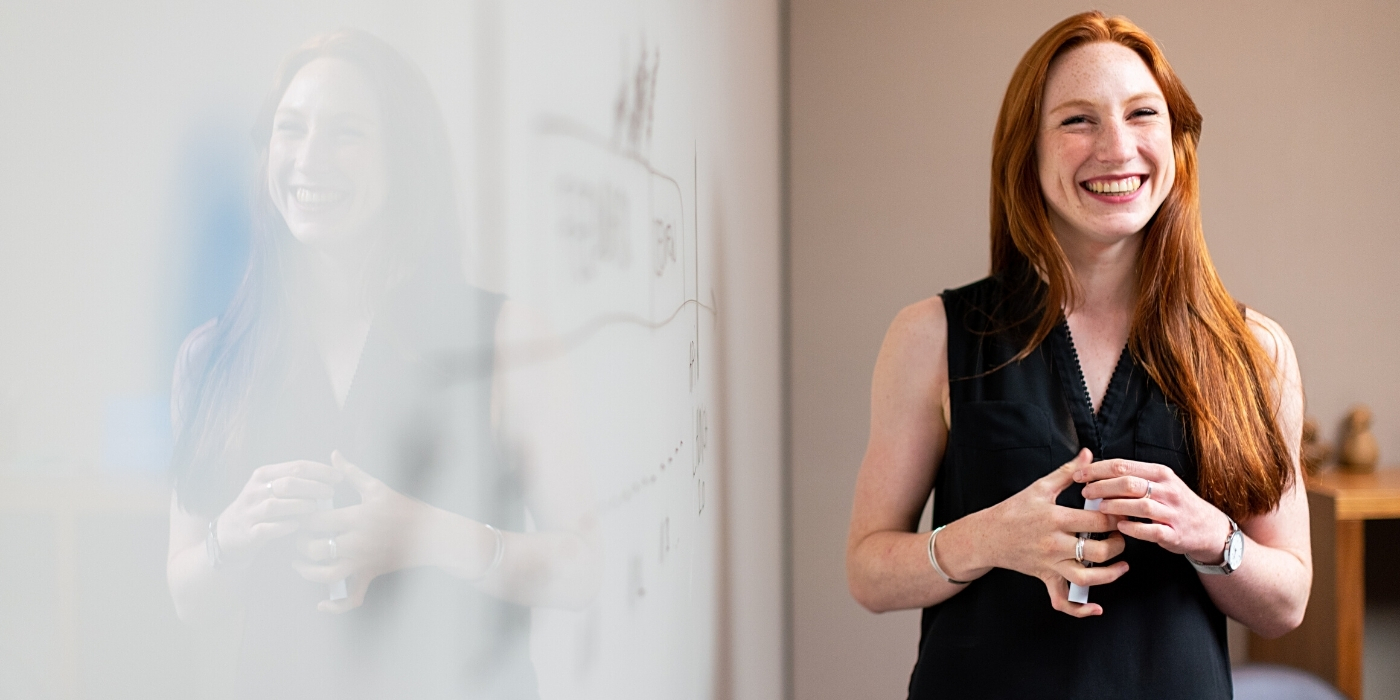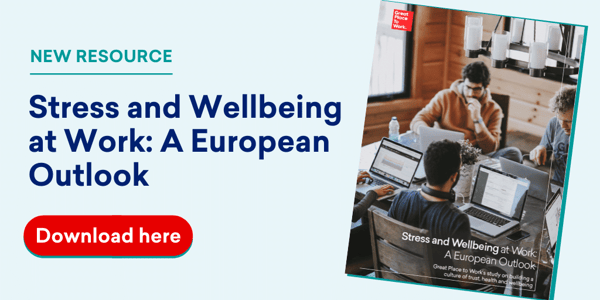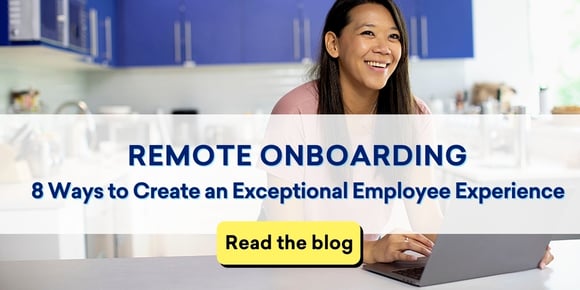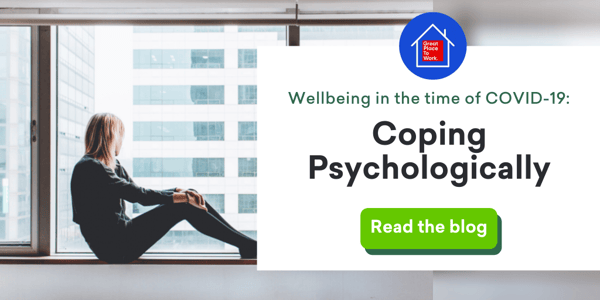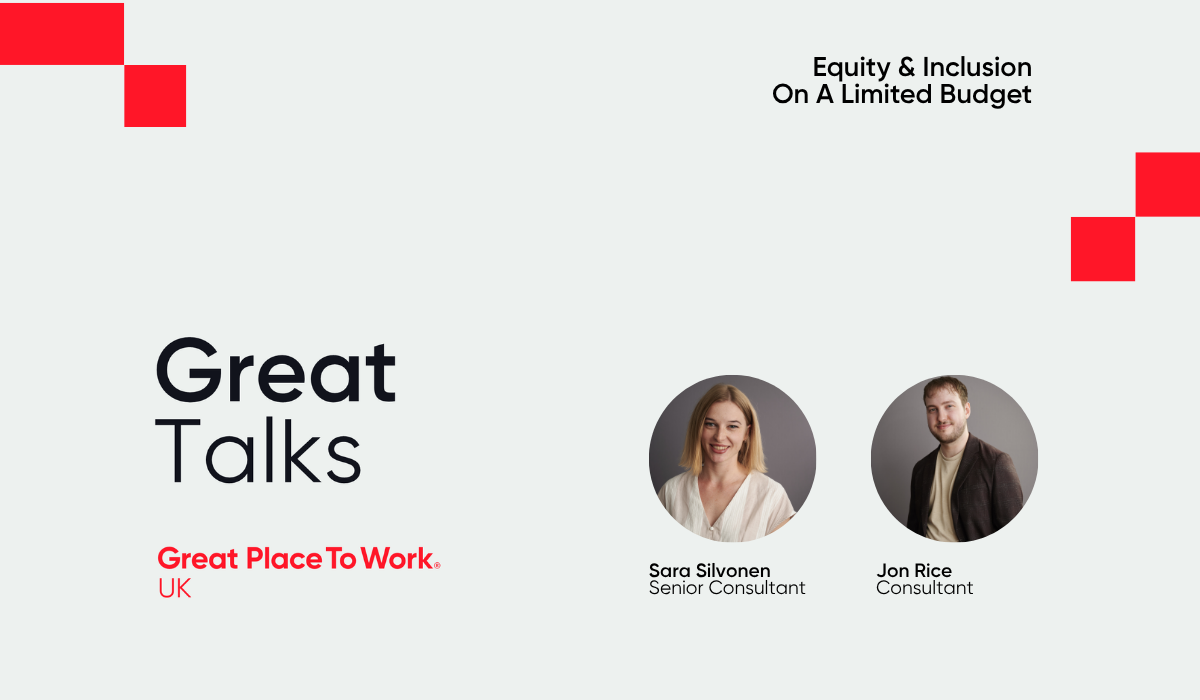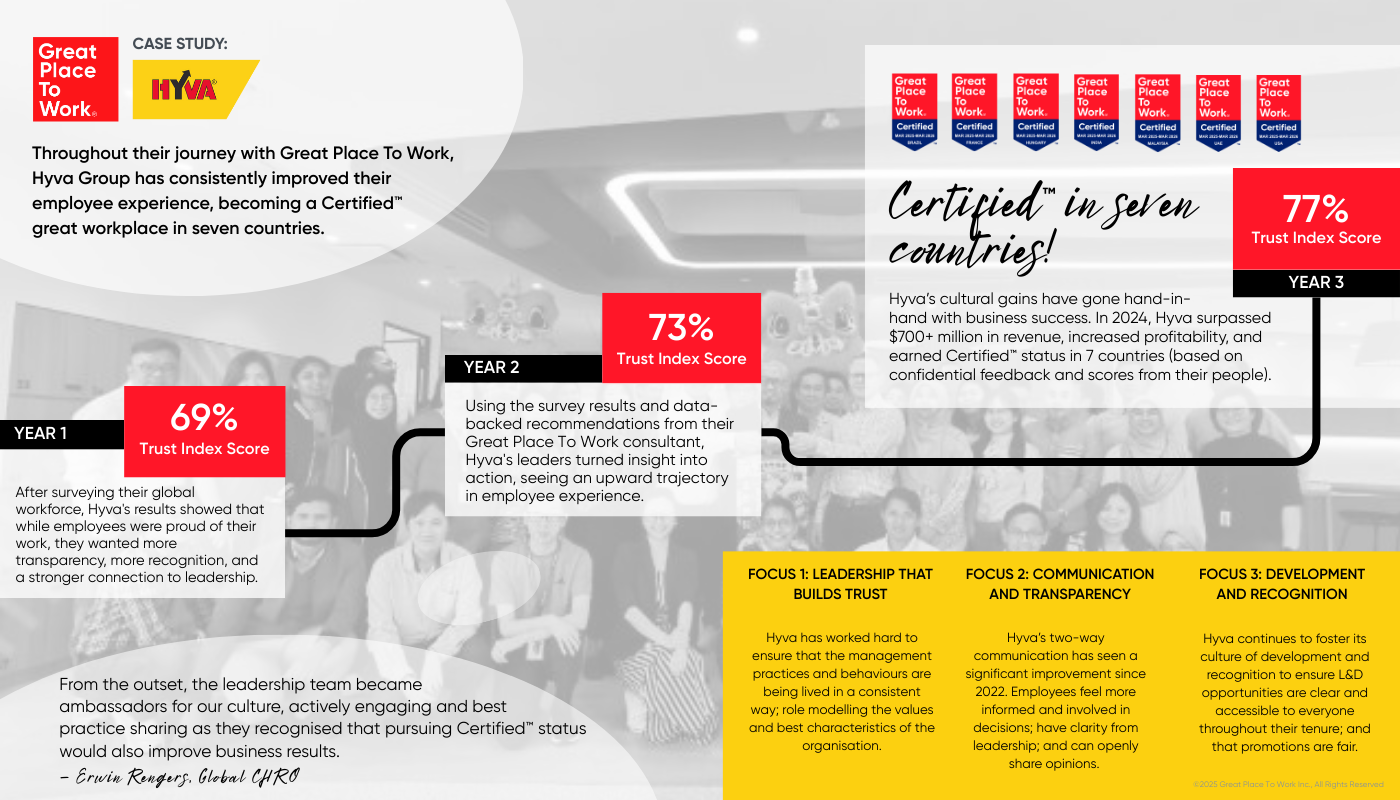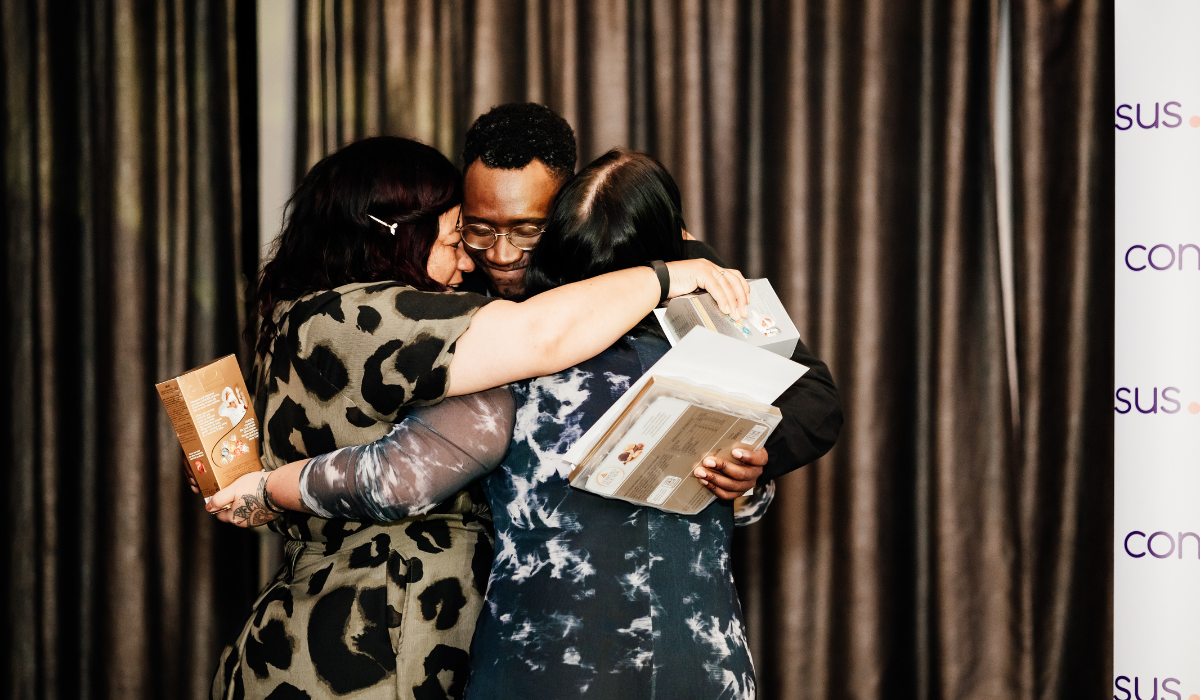With these simple steps, your employees can practice a growth mindset and empower themselves to bounce back during difficult times.
What ‘Resilience’ Means Now
When the ONS released its mid-October population data, things weren’t good: More than 7 in 10 (74%) adults in the UK were either ‘very’ or ‘somewhat worried’ about the effect of Covid-19 on their life right now – the highest proportion since end-April (75%). As we head into winter, having the tools to cope with challenging times will be more important than ever.
While there’s no single definition for the term ‘resilience’, it has consistently been associated with one’s own coping ability – being able to ‘bounce back’, both in terms of short-term response and, perhaps more importantly, as a longer-term recovery or adaptation to changing circumstances.
This doesn’t necessarily mean returning to a ‘pre-crisis’ state (which has been a typical way of characterising resilience). Instead, resilience in 2020 involves a letting go of the way things were by choosing to focus on unique learnings, personal growth and finding agile ways of embracing sudden change and challenges.
With this in mind, here are 5 steps you can share with your employees to help them build their resilience right now:
1) Reframe Your Mindset
Resilience has a lot to do with how we think about and view events and the world around us.
A growth mindset is key here.
Rather than deny, ignore or underestimate the negatives in their life, resilient people will often choose to confront difficulties openly, ultimately selecting the most beneficial response to a problem or crisis.
Our efforts and actions largely determine the outcomes we experience. By simply changing our mindset, we can drive more intentional and adaptive behaviours that, in turn, boost our mental and emotional wellbeing.
Take 2020 for example. In a year of varying lockdown restrictions and social distancing, such unusual and uncomfortable norms have given many people a newfound appreciation for social connection, family, daily routines and work-life balance, amongst others.
Some practical tips for reframing one’s mindset include:
- Seeing challenges as opportunities for learning and growth – perhaps even as a way of breaking free from bad habits;
- Practicing positive ‘self-talk’ – such as approaching a task with phrases like “I can do this” or “This is good, I got this!”;
- Remembering you’re not alone – acknowledging that there are others with similar or worse experiences can bring a new sense of perspective and confidence;
- Remind yourself that we never know what positive spillover effects may result from 'negative' events. For example, a sudden change to remote working was challenging for many teams initially, but over time has inspired an unprecedented and protracted effort for regular virtual bonding that's strengthened relationships between colleagues.
2) Practice Mindfulness
In a 24/7, notification-bombarded world, being forced to slow down temporarily may be a blessing in disguise. After all, serial multitasking and being constantly ‘busy’ is often far less productive than focusing on one task at a time and taking regular breaks.
Without the option of places to go, commutes to plan life around, and a limited supply of daylight, simpler activities now need to be stretched out to fill the days and avoid at-home boredom.
Some instant mindfulness activities you could try today:
- Avoid mindless scrolling on your phone while brewing your morning cuppa, eating breakfast - or during any other activity for that matter;
- Try a more complex recipe than what you’d normally cook at home (we don’t always need a special occasion to make a special meal);
- Concentrate on the various sights, smells and sounds your senses pick up on a simple walk through the autumn leaves.
Whichever way you choose to fill your time, make a conscious effort not to rush through it. Stay fully present in the moment by tuning into all five senses. You’ll get much more out of it and build up your reservoir of mental calm.
3) Go Outside (Yes, Even in the Winter)
As the days become shorter, the air colder and rain more frequent, it may feel all too tempting to just stay put at home.
Avoid using the ‘bad’ weather to rationalise not going outside: making the effort to go out for fresh air is worth it. Besides, in pre-lockdown times, rain or cold would certainly not have prevented us from leaving the house in the mornings!
This year, many of us have had the luxury of avoiding crowded streets and train platforms that were part of our daily commute. But getting out of the house during winter will be of utmost importance when more of our leisure time will be spent in the same indoor spaces as where we work.
We know how beneficial exercise is for our bodies and minds – but doing this in oxygen-rich outdoor air has positive impacts above and beyond what can be achieved with an indoor workout. In addition to clearing the lungs and lowering blood pressure, fresh air also aids blood circulation and digestion, while boosting energy levels, attention and memory functions.
A gentle outdoor walk is one of the most effective ways to ward off and recover faster from the common cold (just make sure not to raise your heart rate too much!). A growing body of research also underlines the uplifting impact of green and blue spaces on our mental wellbeing – think leafy parks, forest, lakes and coasts.
4) Create Moments of Calm, Cosiness & Delight
A major element of mental resilience is acknowledging and accepting the things that are out of your control, as well as those things that you can exert control over.
The world at large – our macroenvironment – is still turbulent and uncertain, but our immediate world – or microenvironment – can essentially be whatever we choose to make it.
“Our threat focus, our stress response is permanently dialed up. Resilient people don’t diminish the negative, but they also have worked out a way of tuning into the good.”
– Dr Lucy Hone, Director of New Zealand Institute of Wellbeing & Resilience
In her recent TED Talk, Dr Lucy Hone, Director of the New Zealand Institute of Wellbeing & Resilience, noted the importance of making “an intentional, deliberate, ongoing effort to tune into what’s good in your world”. Often this comes down to the little things that can have a big impact. For example:
- Listening to a feel-good playlist during or after working hours;
- Using a favourite scented candle or set of fairy lights to create a cosy ambience in your leisure area;
- Investing in quality woolen socks or slippers; or
- Trying a new creative activity such as cooking an advanced recipe, journaling, sketching, or attempting arts & crafts you've never tried before.
Ultimately you’re in charge, so empower yourself to create and enjoy moments of calm, cosiness and delight. It might take more conscious effort to begin with, but will become more habitual with time.
5) Surround Yourself with Supportive People
A problem shared is a problem halved – but this isn’t just about making time to socialise with friends or family. Lockdown can be an ideal opportunity to evaluate which of our relationships are healthy and offer the most value to us, then prioritise accordingly.
Writing out reasons of gratitude for specific people may be a good way to get started. By acknowledging and actively nurturing the positive relationships in your life, you can weave a social and emotional support network of people who will be ready to catch you if you were ever to fall – and for whom you’d be willing to do the same.
Social support – and knowing when and how to draw strength from this – is perhaps the single most enduring resource for resilience.
Not sure how to boost resilience in your remote workforce?
Get in touch to learn about our bespoke resilience workshops.
Recommended for you
Great Place to Work® specialises in helping organisations build impactful workplace cultures. We are here to help support our clients during this period of uncertainty. If you are a client, please reach out to your Account Manager who can share the tools we have in place to enable workplaces to measure and understand their current employee sentiments. If you are not a current client, stay tuned to our blog posts, Twitter, LinkedIn and publications for people practices, advice and thought leadership on how best to navigate this unprecedented time.
